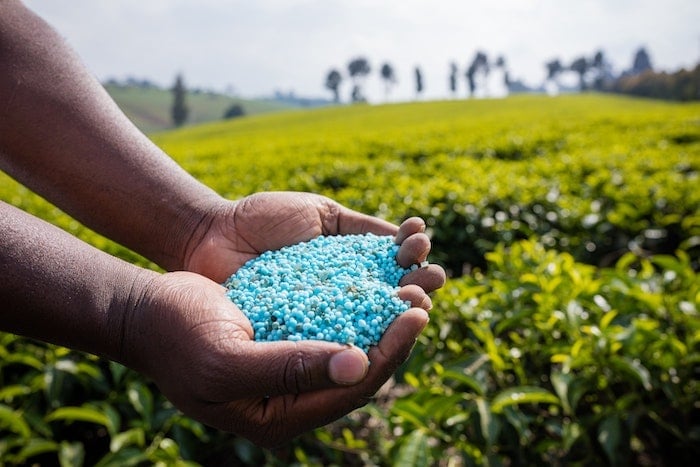November 13, 2025 | 21:11 GMT +7
November 13, 2025 | 21:11 GMT +7
Hotline: 0913.378.918
November 13, 2025 | 21:11 GMT +7
Hotline: 0913.378.918

America’s farms are more productive than ever, but farmers are facing, rising input costs, and shrinking export markets.
Tightening supplies and tariff concerns have driven up costs for potash-, nitrogen-, and phosphate-based products just as farmers are earning less for their harvests.
A North American benchmark of fertilizer prices recently surged to its highest level since at least 2016 relative to a basket of grain and oilseed futures — topping even the highs seen at the time of Russia’s invasion of Ukraine.
The US gets the vast majority of its potash — used in the production of corn and soybeans, the nation’s two biggest crops — from Canada, whose supplies are mostly exempt from tariffs under the free trade agreement among the US, Mexico and Canada. Levies still apply on overall fertilizer shipments from other producers including Qatar and Saudi Arabia.
“Tariff uncertainty has certainly been a factor in driving fertilizer prices higher, even with exemptions carved out for most fertilizers,” Daniel Cole, a Bloomberg Intelligence analyst, said by email. While other issues — including China’s decision to curb some exports and recent production outages in the Middle East — have also fueled the rally, the fertilizer industry “has largely been in a state of confusion since the tariff rollout.”
The squeeze highlights the financial strain on farmers — many of whom remain loyal Trump supporters — as they contend with depressed crop prices and ongoing trade disruptions. While the administration has stood firmly behind growers on key issues like biofuel-blending quotas, it has yet to address the rising concerns around affordability.
Cutting fertilizer import tariffs would offer “the fastest relief for farmers,” Republican Senator Chuck Grassley of Iowa said in a post on X earlier this week. In a separate post, he said corn prices have fallen well below production costs as farmers prepare to harvest a record crop.
Tariffs have constrained shipments of phosphate and potash to the US, and are expected to “remain subdued” because of tariffs, producer Mosaic Co. said earlier this month.
The Trump administration has taken steps to support higher domestic production of minerals including potash. The US Geological Survey this week proposed to include potash in a list of critical minerals — a further step in clearing the way for broader policy support. The Fertilizer Institute, the industry’s lobby, has also been pushing for designating potash as a critical mineral in order to make a better case for tariff exemptions.
Illinois Governor JB Pritzker on Tuesday said a long-delayed project to produce a key nitrogen-fertilizer ingredient is moving forward after reaching a tax credit agreement with the state’s Department of Commerce. The $2 billion facility, which will be built by Cronus Chemicals LLC, has been in the works for nearly a decade.
Meanwhile, CF Industries Holdings Inc. is teaming with Jera Co., Japan’s largest power utility, and trading house Mitsui & Co. to build the world’s biggest low-carbon ammonia plant. The facility in Louisiana, which is expected to begin commercial production in 2029, will have an annual capacity of approximately 1.4 million metric tons.
Bloomberg

(VAN) Benchmark international prices of milled declined in October as harvests started or improved in some parts of the globe.

(VAN) Show cause orders will be issued to retailers who sell imported rice at prices exceeding the maximum suggested retail price (MSRP) of P43 per kilo, Philippines Agriculture Secretary said in a statement on Thursday.

(VAN) Coffee prices on October 20, 2025, remained stable domestically, trading at 113,500–114,500 VND/kg. Similarly, global coffee prices also moved sideways.

(VAN) By October, Vietnam’s coffee exports had surpassed USD 7 billion for the first time and will exceed USD 8 billion within this year.

(VAN) Illinois rancher says Texas, Oklahoma, Kansas lost grass and forage, forcing massive cattle liquidation.

(VAN) Coffee prices on October 12, 2025, remained flat, trading at VND 113,000–VND 114,000/kg. This week, coffee prices continued to decline sharply.

(VAN) Coffee prices on October 9, 2025, have rebounded. Domestic coffee prices have risen by VND 1,000, trading at VND 114,000–VND 115,000/kg.